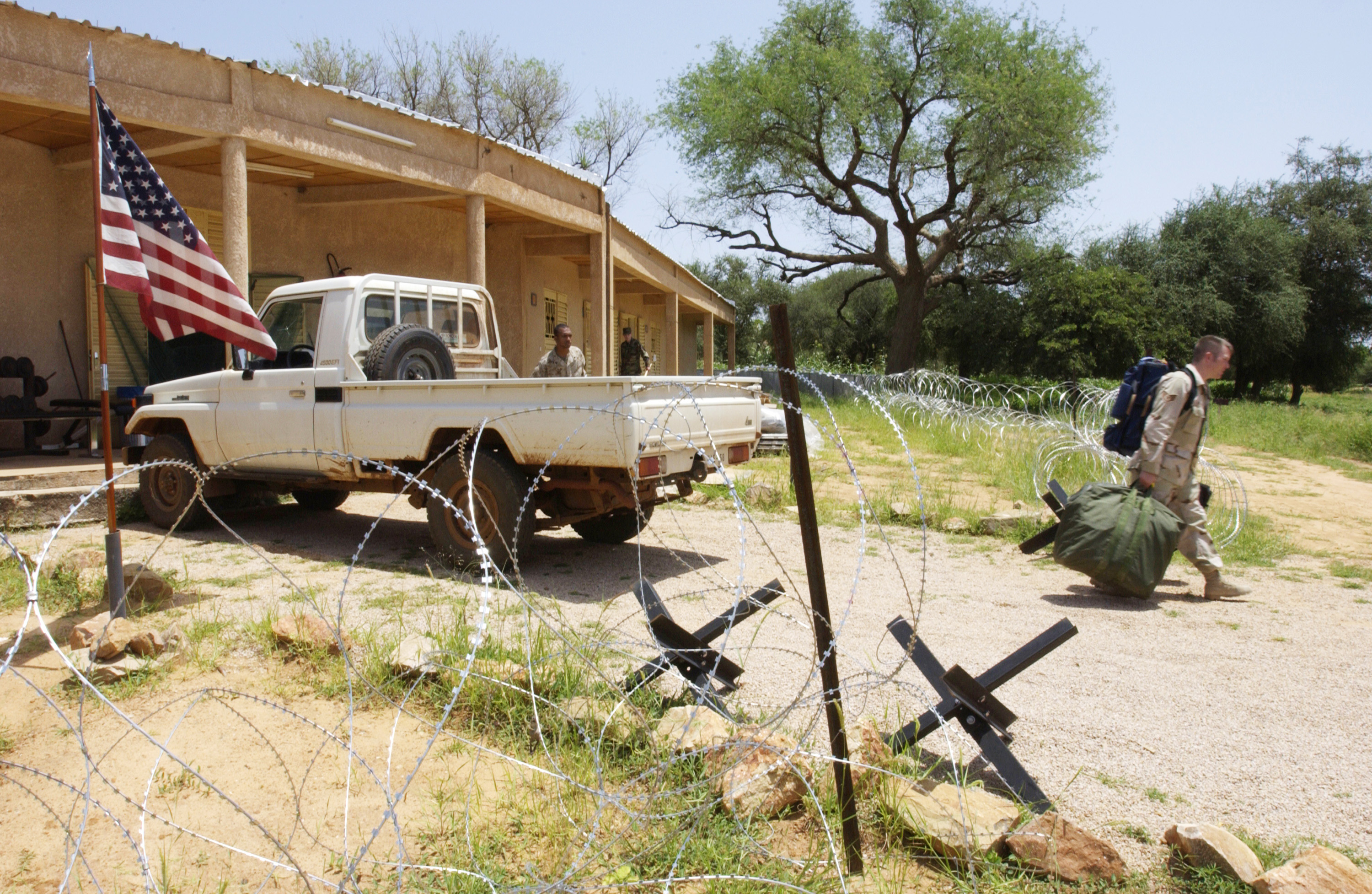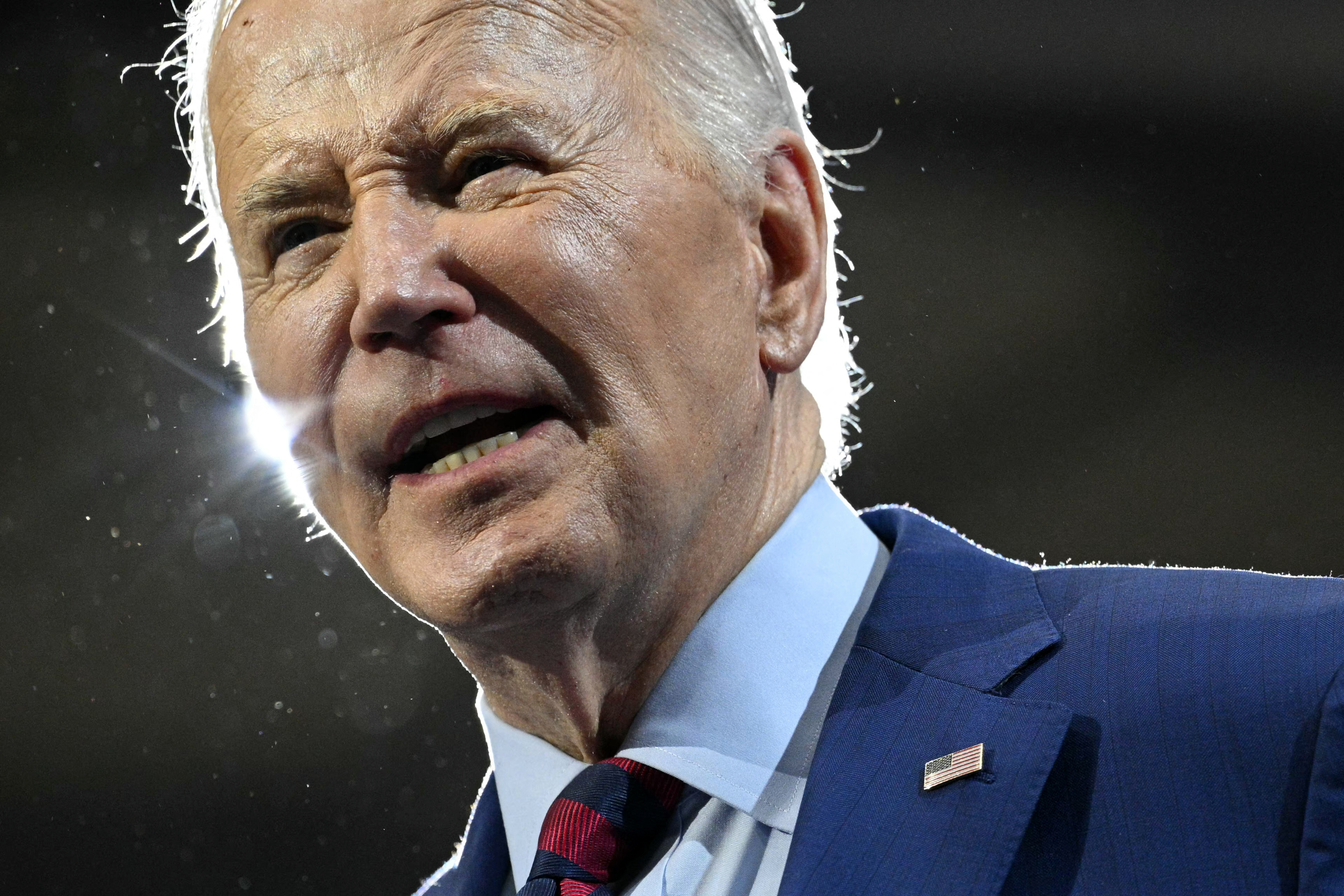It is not known where Wagner founder Yevgeny Prigozhin's issued his first message since his mutiny against Moscow's military establishment, but equally uncertain are some of the circumstances of his dramatic march on Moscow.
The mercenary chief did not strike a penitent tone in his 11-minute Telegram audio recording on Monday as he explained why his fighters seized the Southern Military Command HQ in Rostov-on-Don and barrelled towards the Russian capital in columns before turning back.
Prigozhin insisted his beef was with Moscow's military leadership and not Russian President Vladimir Putin, saying: "We went to demonstrate our protest and not to overthrow power in the country."
But even if Prigozhin was no revolutionary, the suddenness of his reversal and a deal involving Belarusian president Alexander Lukashenko has left unanswered questions, not least whether Putin has been weakened by the events.
Newsweek looks at some of the unanswered questions:
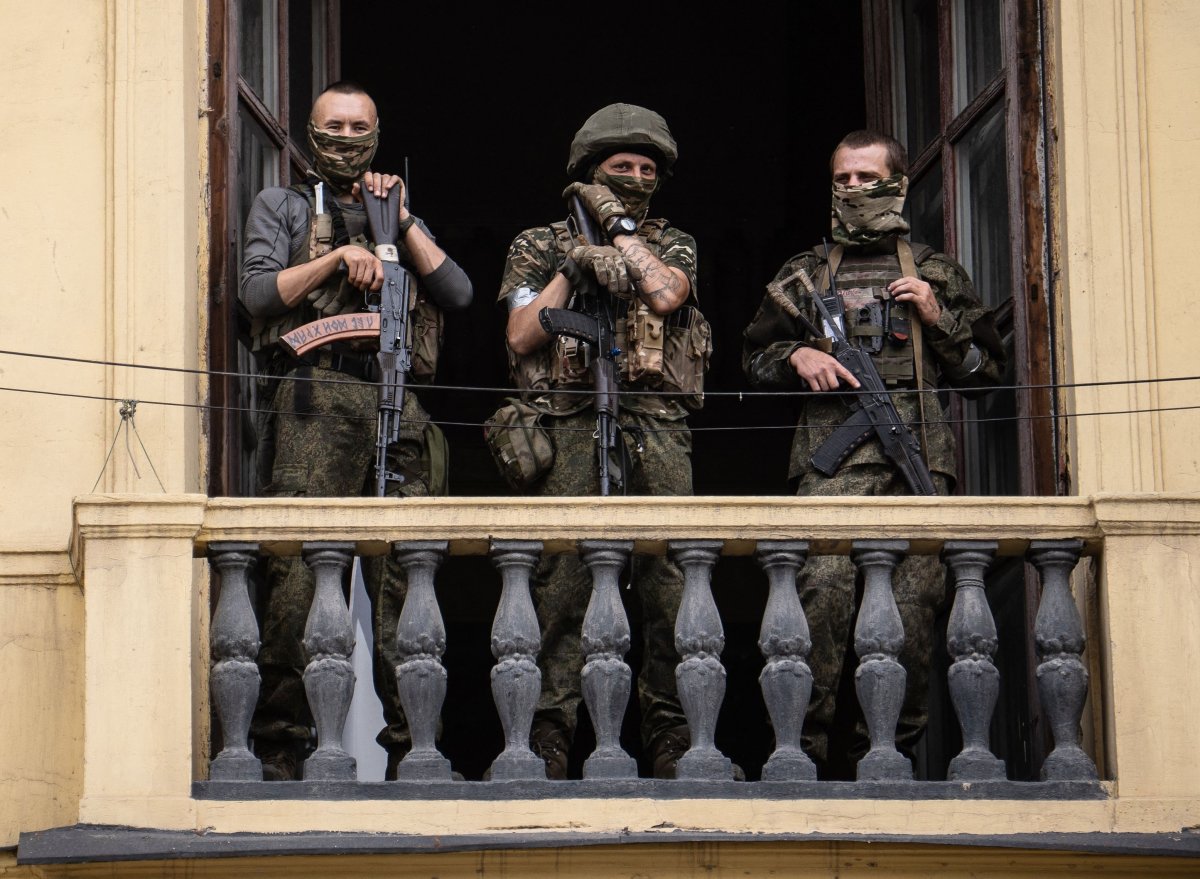
Why no full attack on Wagner as it neared Moscow?
The Russian response to a Wagner convoy heading towards Moscow was "haphazard", said Zev Faintuch, senior intelligence analyst at the security firm Global Guardian.
"We demonstrably saw that there was no real concerted effort to stop the column," he told Newsweek, which suggested that "we might be able to assume that there was a long period of shock and confusion."
Prigozhin said on Saturday he had been concerned that "blood may spill," which was why he turned his convoys back from the 400-mile march to Moscow.
But blood did spill and 13 crew reportedly died after Wagner shot down six Russian aircraft, five helicopters and the valuable Ilyushin Il-22M Coot aerial command post and radio-relay plane, of which the Russian air force only has 30.
Putin made only one address, at 10 a.m. on Saturday, denouncing Wagner's actions. This was followed by unconfirmed reports that the Russian president had flown to St. Petersburg. Defense Minister Sergei Shoigu was nowhere to be seen.
"The scenario exists where, in the absence of a plan from the top brass, it was up to district commanders to make moves against Wagner forces," said Faintuch. "The people in charge were too afraid to act without Putin's blessing. This could possibly explain why we only saw a few sorties directed against the mutineers."
Why did Wagner troops meet such little response in Rostov?
Prigozhin and his retinue marched into Southern Military Command HQ in Rostov-on-Don, where he berated the deputy defense minister, Colonel General Yunus-bek Yevkurov, and the deputy chief of the general staff, Vladimir Alexeyev.
At the nerve center of Russia's operations in Ukraine, Prigozhin was unconcerned about insubordination, calling the pair "senile clowns" and complaining that Russian forces were targeting his troops from the air.
The Wagner chief demanded an audience with the head of Russia's General Staff of the Armed Forces, Valery Gerasimov, and Defense Minister Shoigu, both of whom he has condemned throughout the war and wants ousted.
Prigozhin's unchallenged passage into the city may have been aided by the warm welcome many residents in the southern Russian city gave the Wagner troops.
On Saturday night, after he called off his troops, the Wagner boss was greeted with cheers as he sat in his vehicle. Radio Liberty reported that many Rostov residents had friends and relatives in Wagner Group's ranks.
"It appeared that Wagner's bloodless takeover of Rostov was already a fait accompli," said Faintuch, "they did enjoy a certain degree of popular support from the local population and even from some elements of the Russian military stationed there. "
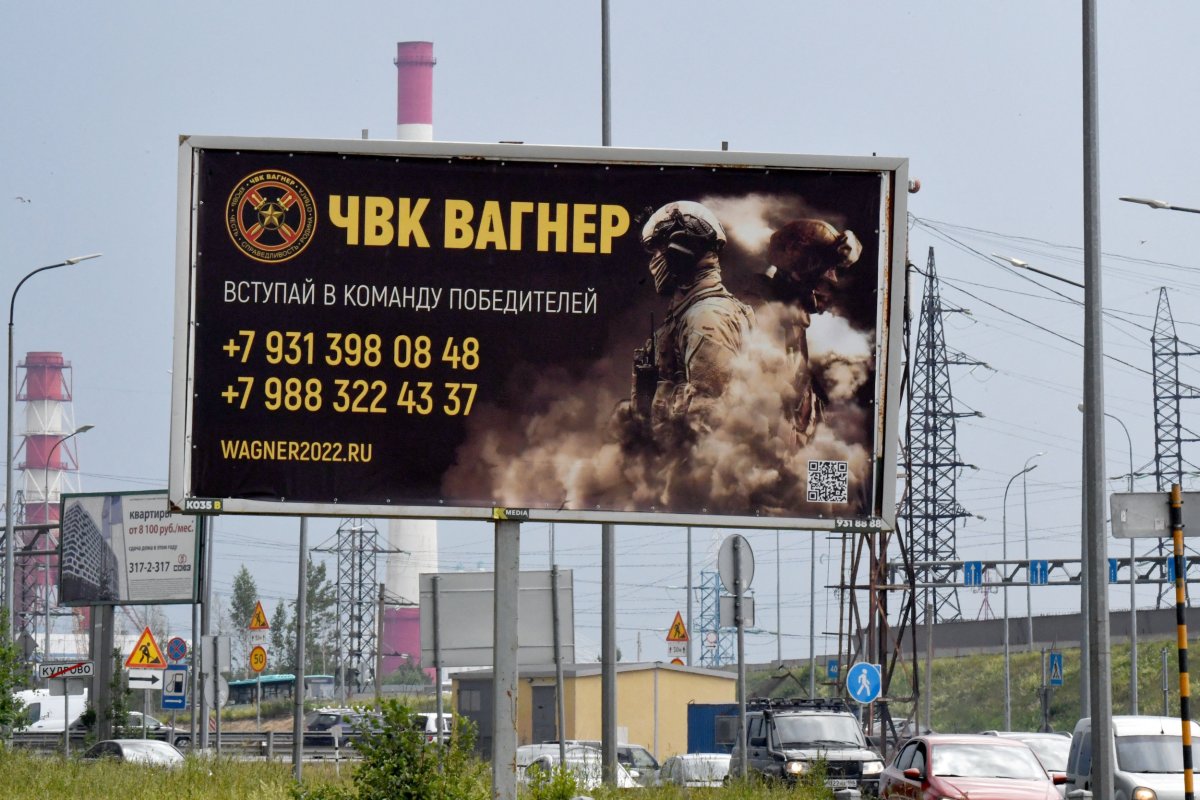
Why was there a lack of coordinated response from officials?
Neither Shoigu nor Gerasimov appeared in public. Other officials, such as Prime Minister Mikhail Mishustin and Moscow Mayor Sergei Sobyanin, were also notable for their absence.
Heads of the country's security services were also nowhere to be seen, prompting the military blogger Yuri Kotenok to write: "Where was the leadership of the Ministry of Defense during the approach of the armed unit to Moscow?"
After Putin's video address on Saturday, Chechen strongman Ramzan Kadyrov sprung to the Russian leader's defense, saying his fighters would "do everything to preserve the unity of Russia." Former president Dmitry Medvedev also backed Putin, but they were in the minority as confusion reigned.
"I think this silence reflects the uncertainty of these officials," said Marie Dumoulin, director, wider Europe program, at the European Council on Foreign Relations (ECFR) think tank.
"Because Prigozhin was somehow seen as close to Putin, some people probably didn't want to react before receiving a clear signal from Putin himself," she told Newsweek. "When Putin had his televised address, the signal was clear, but so was it to Prigozhin."
Why did Prigozhin and his troops not hide their families?
Russian intelligence agencies had reportedly made threats to harm the families of Wagner group leaders.
That claim was reported by the London-based newspaper The Daily Telegraph, citing anonymous British security sources, without specifying which leaders had been warned.
The paper reported that Putin wanted to "take out" Wagner's former leaders and assessed that the mercenary force only had 8,000 members, rather than the 25,000 that are claimed.
What is happening to Wagner?
It still seems unclear what will happen to the mercenary group that posed the biggest threat to Putin's authority in 23 years.
Video on social media showed billboards of the PMC that advertise for recruits being hastily taken down in the immediate aftermath of the mutiny.
Russian regulators blocked access to the VKontakte social network page for the Concord Group, which Prigozhin owns. Meanwhile on Tuesday, the Russian Defense Ministry said preparations were underway for the transfer of Wagner's heavy military equipment to units of the Russian Armed Forces.
However, Prigozhin is still able to make pronouncements on social media. Meanwhile, five Wagner recruitment centers across Russia, including in Moscow, Samara and Novosibirsk, are open for business as usual.
Russian Foreign Minister Sergei Lavrov said on Monday that Wagner contractors would remain in the Central African Republic (CAR) and Mali.
"We can infer that Wagner is just too valuable to the regime to be disbanded completely," said Faintuch. "Wagner is vital for promoting Russian influence in Africa and the Middle East, as well as for sanctions evasion.
"It's too good of a tool to just throw away especially when you view things from a zero-sum lens in which Wagner's, and therefore Russia's, loss could become America's, France's or China's gain."
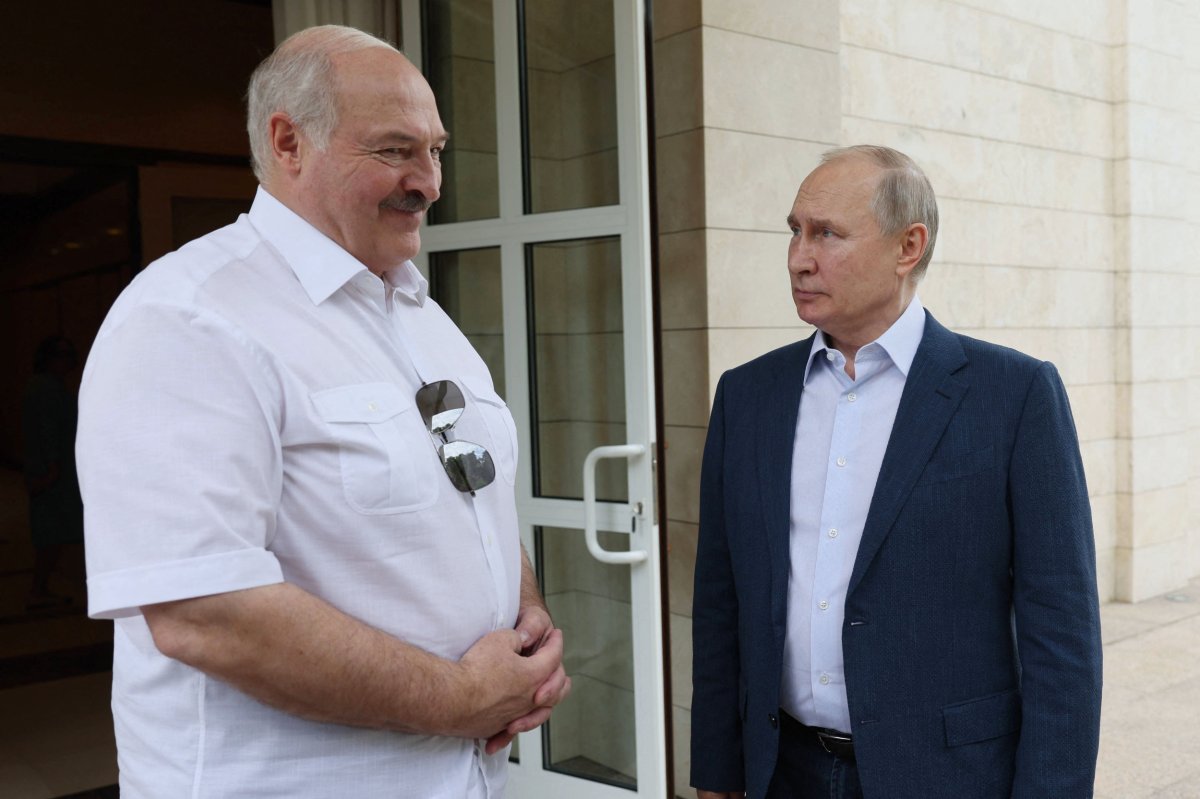
Why was Alexander Lukashenko involved?
The leader of Belarus, Alexander Lukashenko, emerged as an unlikely negotiator, with the Kremlin and Minsk touting his role in getting Prigozhin to call off his rebellion.
Lukashenko has been Putin's closest ally in his invasion of Ukraine, allowing—probably without much choice—Belarusian territory to be used as a staging post for attacks.
Citing Kremlin sources, the independent Russian language news outlet Meduza reported that negotiations had started on Friday June 23, when Prigozhin had announced his "march of justice."
The Wagner boss tried to contact Putin around midday Saturday, after the Russian leader had denounced him. However, Putin did not want to speak with him, Meduza reported, adding that Prigozhin realized he had "gone too far."
Prigozhin insisted that the talks included top officials, Meduza reported, but that Putin was reluctant to engage with the Wagner chief.
Lukashenko reportedly led the final round of negotiations, which included the Kremlin's chief of staff Anton Vaino, the secretary of Russia's Security Council Nikolai Patrushev, and the Russian ambassador to Belarus Boris Gryzlov.
Hanna Liubakova, a journalist from Minsk and non-resident fellow at the Atlantic Council think tank, said pro-regime propaganda in Belarus tried to portray Lukashenko as the "wise negotiator."
"In reality, his role might have only amounted to being a middleman and a messenger for Putin, who did not want to speak directly with Prigozhin, given that only a few hours before that, he called the Wagner boss a traitor," she told Newsweek.
"The Belarusian population finds it difficult to understand this public relations game," she added.
Why would Prigozhin agree to the deal?
There are few details of the agreement, but the Kremlin said Prigozhin agreed to leave Russia for Belarus and withdraw his fighters.
In return Prigozhin would get immunity and for the criminal case opened by Russia's security services against Prigozhin for organizing an armed insurrection to be dropped. His fighters also would not face legal action. Russia's main security agency, the FSB, said on Tuesday that the criminal case against Prigozhin had been closed.
Whether the terms of the deal will stick remain to be seen. Faintuch believes that Prigozhin "didn't have a choice and this deal was not built on trust but out of necessity on both sides."
"Prigozhin is still useful to Putin. If he wasn't, he'd be in the ground. At this point, he's too big and could become a martyr for the ultra-nationalist right—the only real constituency that could give Putin some problems," he added.
If dissolving Wagner was part of the deal, Konstantin Sonin, a Russian-born political economist and professor at the University of Chicago said, the group would resist such a move.
"The saga of Wagner is ongoing," Sonin told Newsweek, "This whole thing is very bizarre, but a lot of military coups historically are very bizarre, so it's not more bizarre than most."
Uncommon Knowledge
Newsweek is committed to challenging conventional wisdom and finding connections in the search for common ground.
Newsweek is committed to challenging conventional wisdom and finding connections in the search for common ground.
About the writer
Brendan Cole is a Newsweek Senior News Reporter based in London, UK. His focus is Russia and Ukraine, in particular ... Read more
To read how Newsweek uses AI as a newsroom tool, Click here.




